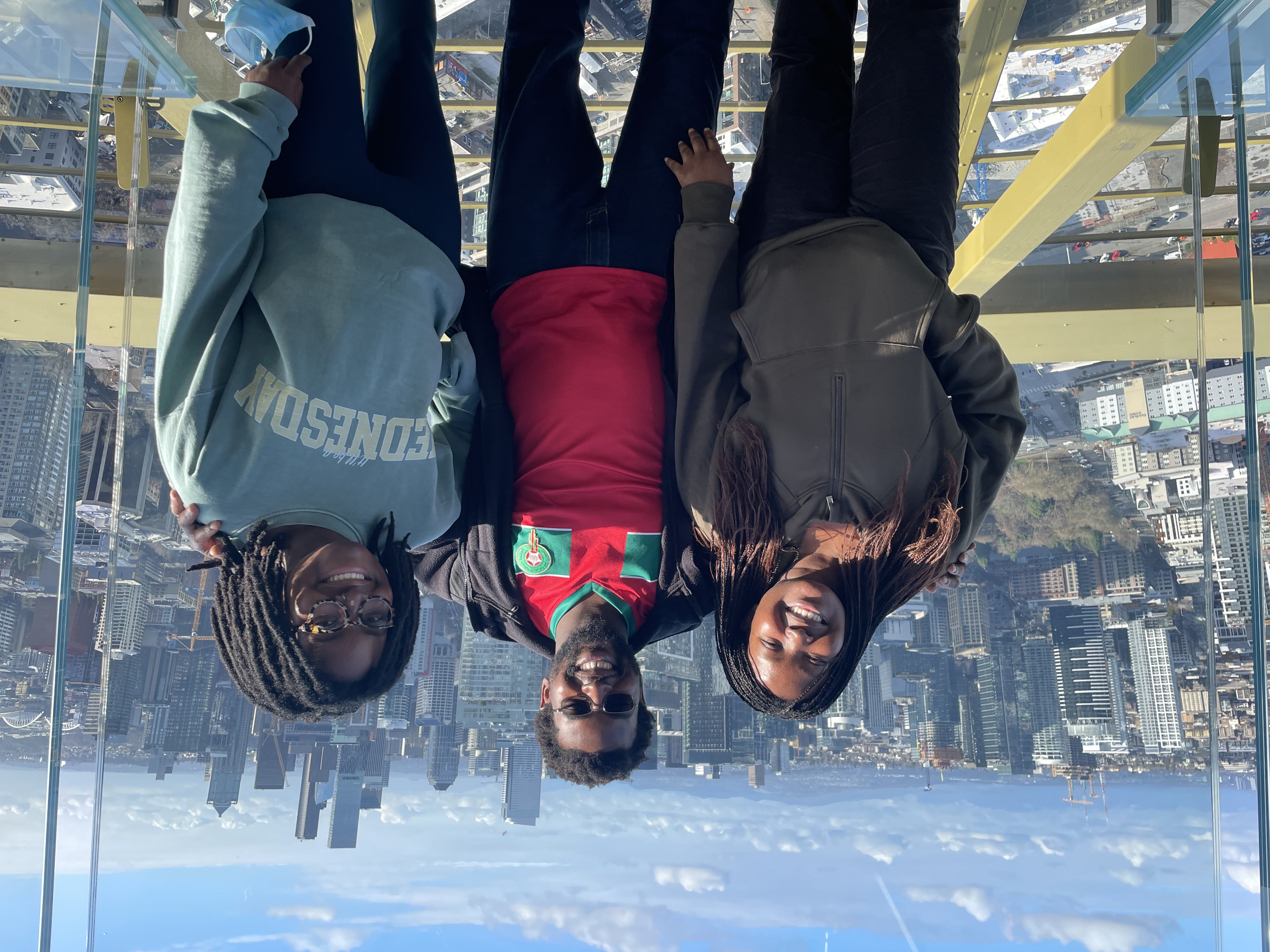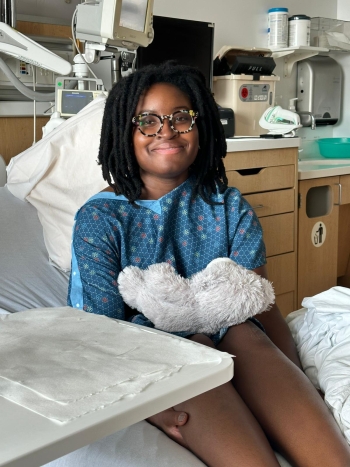6/19/24 news article
Dayton Children’s offers curative treatment for sickle cell disease
Gene therapy, bone marrow transplant now provide cure for painful, chronic condition

Dayton Children’s Hospital is giving patients that have been living with sickle cell disease a new beginning through two different curative treatments in partnership with Nationwide Children’s Hospital.
Sickle cell disease is a lifelong genetic disease that affects the red blood cells. Typically, red blood cells are oval-shaped but in individuals with sickle cell disease, the red blood cells become “sickled” in shape like a crescent moon. This can cause the cells to become stuck in small blood vessels. Individuals can experience pain and anemia and are at increased risk for strokes, organ damage, infections, and other serious health problems. Treatment for sickle cell varies from patient to patient but typically involves treating ‘pain crises,’ which can develop due to weather or overexertion.
The new treatments available for sickle cell patients include gene therapy, which was recently approved by the Food and Drug Administration (FDA) and bone marrow transplant. Both treatments are available to eligible patients through the cellular therapy program, a collaboration between Nationwide Children’s Hospital and Dayton Children’s. This one program, two campus approach allows Dayton-area families to stay close to home for most of their care, while receiving expert transplant care from Nationwide Children’s, one of the top ten children’s cancer hospitals in the country. Nurse coordinators and hematology/oncology providers on both teams work with and support families through the whole process to help them navigate the journey.
“Sickle cell disease has long been known as a chronic, debilitating illness that affects thousands of children and adults,” said Mukund Dole, MD, pediatric hematologist and oncologist at Dayton Children’s. “I am humbled to be able to offer these curative treatment options to our sickle cell patients and give them the opportunity to live a life free of pain from sickle cell disease.”
treatment using gene therapy
In December 2023, the FDA approved two different gene therapy treatments, Casgevy and Lyfgenia, for sickle cell disease for patients 12 years and older. According to the FDA, the therapies are produced from the patients’ own blood stem cells, which are modified then given back as a one-time, single-dose infusion as part of a stem cell transplant. Prior to treatment, a patients’ own stem cells are collected, and then the patient must undergo high-dose chemotherapy, a process that removes cells from the bone marrow so they can be replaced with the modified cells. Following treatment, the patient is required to take medication to prevent rejection of the stem cells.
Dayton Children’s works with Nationwide Children’s to administer these therapies to eligible patients.
treatment using a bone marrow transplant
The other option for treatment is to undergo a bone marrow transplant. A bone marrow or stem cell transplant was previously the only curative option for sickle cell patients. It involves removing the abnormal stem cells in the bone marrow and replacing them with healthy ones from a donor, oftentimes the patient’s brother or sister. After the transplant is completed, the patient will stay at the hospital for several weeks for observation and to receive medication to prevent rejection of the new stem cells.
One of the first patients to benefit from this new treatment at Dayton Children’s was Awo (pictured), who spent the first 22 years of her life managing sickle cell disease; from the physical struggles of pain crises and hospital visits to the emotional ones – the impact on her schoolwork, social life and mental health.
As Awo’s pain started to become more severe, she and her family started to look for new treatment options. After exploring the different the treatments, Awo and her family were referred to the cellular therapy program and decided to move forward with a bone marrow transplant
After receiving treatment, Awo is now cured of sickle cell disease. Awo graduated from the Ohio State University in summer 2022 and will be attending law school at the University of Michigan in fall 2024.
“Seeing patients, like Awo, cured from sickle cell disease is incredibly rewarding,” said Dr. Dole. “These treatment options replace pain and crisis with hope and health. We hope to see more patients from the Dayton region benefit from these treatments and get a chance at a future filled with possibility.”Read Awo's full story
Accessing care
Sickle cell patients that are interested in accessing these treatments should reach out to their hematologist to explore eligibility and available options.


